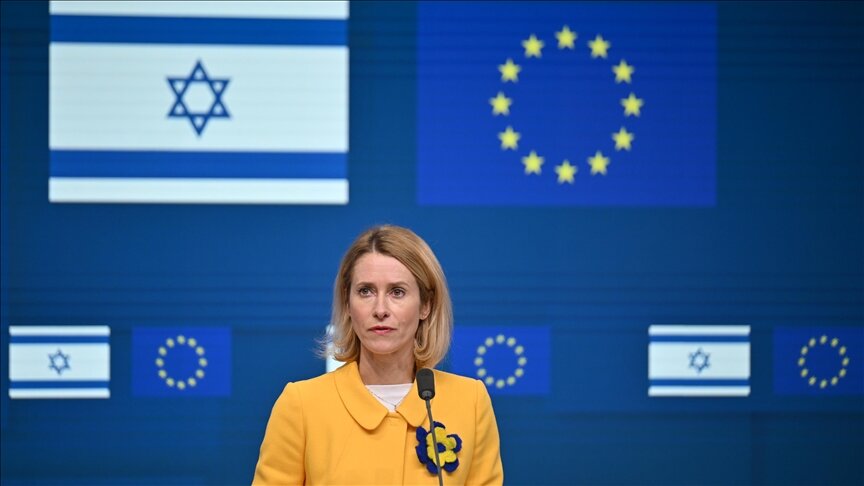
The EU has been criticized for pausing sanctions against Israel in response to Donald Trump’s peacemaking efforts in the Middle East, as the fragile ceasefire came under threat.
After meeting EU foreign ministers on Monday, the European foreign policy chief, Kaja Kallas, announced a pause on efforts to suspend preferential trade with Israel and sanctions against people responsible for fueling the conflict on both sides, the Guardian reported.
The context had changed since the measures were proposed last month, Kallas said. Noting “divergent views”, she said ministers had agreed: “We don’t move with the measures now, but we don’t take them off the table either because the situation is fragile.”
Two people who worked for the EU in senior roles, speaking separately, criticized the decision not to move forward with sanctions.
Sven Kühn von Burgsdorff, a former EU representative to the Palestinian territories, told the Guardian that Kallas missed “the point” on legal accountability.
“Sanctions are not just a measure to induce or coerce a third party to change or adjust its behavior. Restrictive measures are part of the tools the EU has given itself to react to breaches of both European and international law,” he said.
The EU concluded in June that Israel had breached human rights obligations under their association agreement, which governs trade and cooperation between the two sides. Lawyers say the EU is also obliged to ensure policy is compliant with a non-binding opinion from international court of justice in 2024 requiring Israel to end its occupation of the Palestinian territories as soon as possible.
Burgsdorff co-organized a statement signed by 414 former senior diplomats and officials last week urging robust EU action “against spoilers and extremists on both sides” whose actions jeopardized “the establishment of a future Palestinian state”.
The statement welcomed the Trump plan, but noted that the question of Palestinian self-determination was only “vaguely addressed”.
Nathalie Tocci, a former adviser to two EU foreign policy high representatives, said it would be the worst possible outcome for the bloc to ditch sanctions.
“That is the last thing that we should be doing, because this is exactly the moment when you need to keep the pressure on. Because we all know that it’s certainly not a foregone conclusion that this plan will be implemented,” Tocci told the Guardian, referring to the first phase of Trump’s plan, which has been marred by violence, prompting a diplomatic scramble to shore up the agreement.
“I fear that … European governments and institutions, will be … reverting back to the sort of old, familiar patterns,” she added.
Disclaimer : This story is auto aggregated by a computer programme and has not been created or edited by DOWNTHENEWS. Publisher: tehrantimes.com








